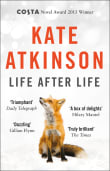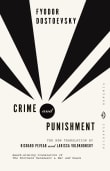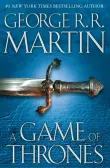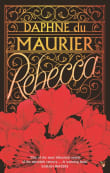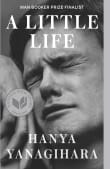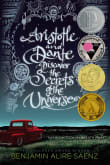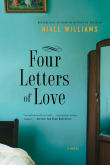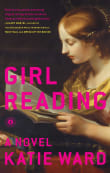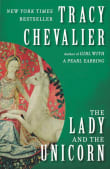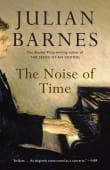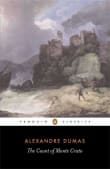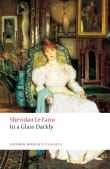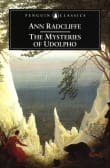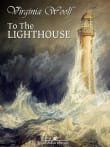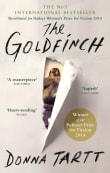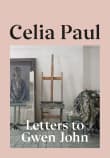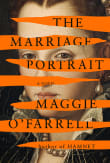The Picture of Dorian Gray
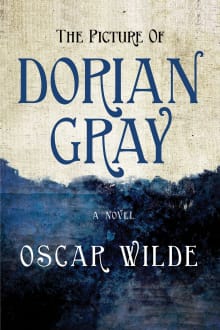
Book description
'A triumph of execution ... one of the best narratives of the "double life" of a Victorian gentleman' Peter Ackroyd
Oscar Wilde's alluring novel of decadence and sin was a succes de scandale on publication. It follows Dorian Gray who, enthralled by his own exquisite portrait, exchanges his soul for…
Why read it?
15 authors picked The Picture of Dorian Gray as one of their favorite books. Why do they recommend it?

I have always loved the central premise of the book, that a human being might never age, and yet a portrait of him ages as the years go by.
I love the way that Wilde used elegant and lyrical prose, always boosted by a flamboyant irony, in describing the dissolute life of an aesthete while putting it in the context of a philosophical pursuit of beauty and art. Dorian Gray himself is a deeply flawed moral character, and that is key to the success of the novel.
From Dermot's list on featuring a damaged protagonist.

Don’t tell anyone, but I love this novel more than Oscar Wilde’s plays. It’s such a fantastic concept: a man whose beauty is marred by his corruption, but thanks to selling his soul in exchange for eternal beauty, all the wickedness appears in his portrait and not on his features.
I find that delicious and chilling in equal measure. I’ve lost track of how many times I’ve read this book, almost as many as The Hound, I think. And like that book, it brings me back to cold Dublin nights by the fire, longing for London and finding it…
From Geri's list on mystery and malevolence in 19th century England.

This is not the origin of the haunted painting trope, but it’s certainly the best. Beautiful Dorian Gray is a stunning subject for painter Basil Hallward, and the painting reflects the young man’s natural allure. However, Gray laments the inevitable loss of his beauty and wishes the painting would age instead of him. When it does, he sets off on a hedonistic path that ultimately ravages the painting and the man.
Part antiquated pontifications about beauty, part horror novel, and doused in homoerotic innuendo, this book hits hard on several fronts. While I loved this book when I read it…
From Theodore's list on Book starring tortured artists.
If you love The Picture of Dorian Gray...

“We deserve beautiful things! Whatever the cost!” “We are created to enjoy this world,” and “Pure enjoyment has no repercussions!”.
The book challenges these assumptions. It hints that we are not created just for pleasure. We all have our own work in this world–however small it might be. And when we are in this world–we should look out for our fellow beings, treat nature with respect, and work for the betterment of all. Pleasure at someone else’s cost is a base life with no meaning. A huge loss!
It is a wonderful book that discusses the repercussions of pure pleasure…
From Shobana's list on classical books that teach you about psychology.

Anyone who’s ever taken drugs (or drunk an energy drink) will know that the high always comes at a price: you are not being given new energy; you are just borrowing tomorrow’s energy, and you will pay for it later.
This book tells the story of a man who lives a life of hedonistic depravity but sails through it all, apparently untouched by experience, his face as young and innocent-looking as ever. But all his guilt and fear show up on the face of the portrait of himself that he keeps in his attic. I can’t think of a more…
From Sam's list on making the impossible feel real.

I love the lush, dark vibes of this story. Personally, I appreciate exciting stories that also make me think deeply about things.
Dorian Gray is magical, philosophical, thrilling, and has a twist ending. A haunted portrait? Brilliant banter? Amazing. When I’m in the mood for something beautiful and angsty, this is the perfect book. It’s immersive—think gas lamps, chaise lounges, strawberry ice, strangers in the dark, and London high society. The dark side of Oscar Wilde is unbeatable.
From Carly's list on dark academia novels.
If you love Oscar Wilde...

I regularly teach a first-year seminar that takes students in the fall from Homer to Dante and in the spring from Machiavelli to Trethewey. When I ask them what their favorite modern work is, they invariably name Dorian Gray, a beautifully written and witty novel, with moral ugliness at the center.
What intrigues my students (and me) is not simply the tension between physical beauty and moral ugliness but also the work’s complexity. Is it moral or not? How are we to interpret the preface, the ending, the relation of the two?
From Mark's list on Books that examine beauty and ugliness.

When Dorian Gray realizes how beautiful he is, he offers his soul to stay forever young.
His wish is granted, and his portrait—lovingly painted by friend Basil Hallward—absorbs the ravages of time and bad behavior in his stead. With carte blanche to remain stainless, Dorian spends selfishly, corrupts his friends, and even commits murder.
The reason I recommend this book is the unspoken secret at the heart of it. In a line Wilde deleted from the original publication, Basil tells Dorian, “It is quite true I have worshipped you with far more romance of feeling than a man should ever…
From L.A.'s list on queer love and murder.

I read this book because I was going to see a dance production based on it. I hadn't read Oscar Wilde before, and it took me a while to get used to the style, but as with Conan Doyle’s writing (they were friends), I soon grasped the flow of the writing and the use of the terminology from the era.
There is so much in this book, far more than the story of Dorian Gray, which in itself is a complex diatribe on vanity, aging, youth, and exploring what it is to push moral boundaries. Wilde uses this book as…
If you love The Picture of Dorian Gray...

This book is a fascinating look at how cruelty can turn you ugly on the inside.
It was scandalous at the time of its publication in 1890, because it is very clear that the male character Basil is romantically in love with the man he is painting, the title character Dorian Gray. Basil considers the portrait his best work, and Dorian makes a wish that he can stay as beautiful as the portrait forever.
As Dorian starts to act cruelly toward others, the painting changes but Dorian does not age. The painting acts as a picture of Dorian’s soul as…
From Sara's list on LGBTQ+ to annoy the people trying to ban them.
If you love The Picture of Dorian Gray...
Want books like The Picture of Dorian Gray?
Our community of 12,000+ authors has personally recommended 100 books like The Picture of Dorian Gray.



